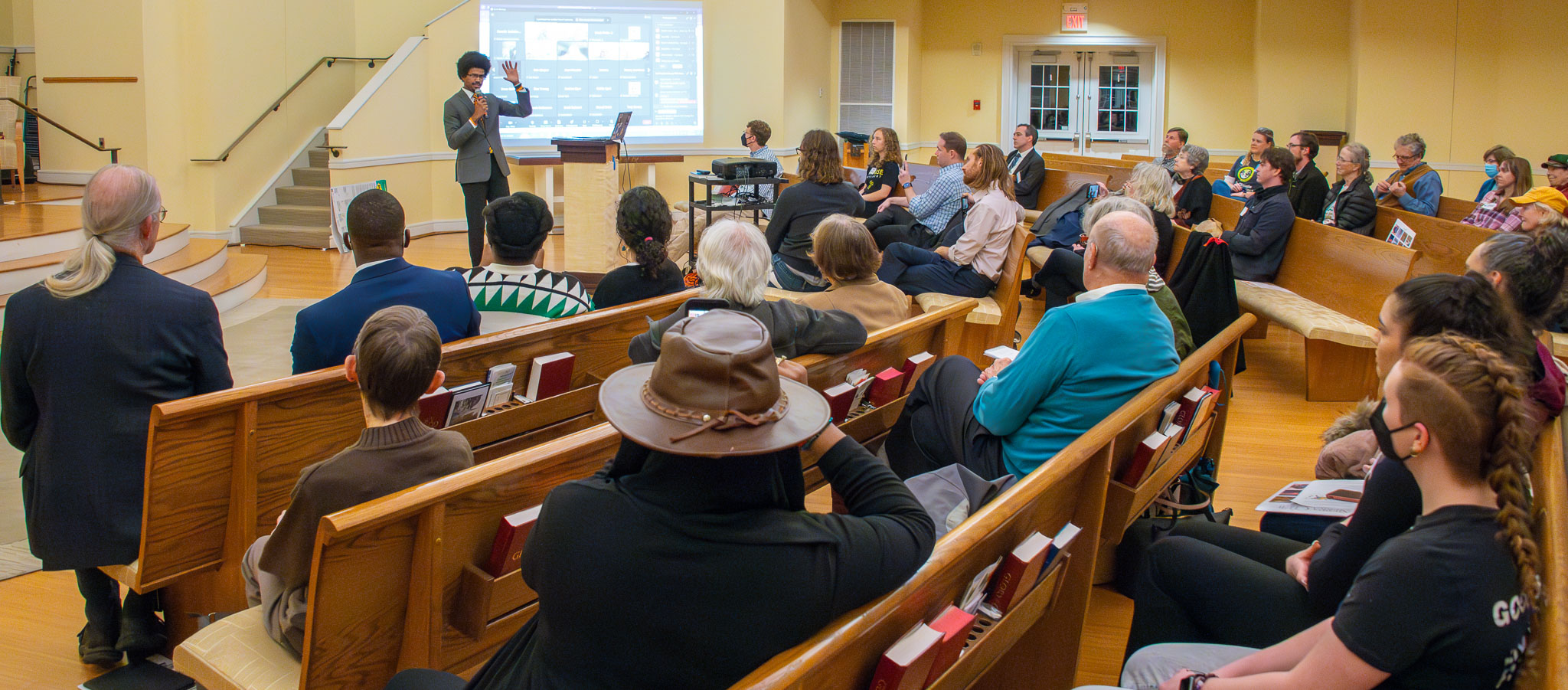The coalition — comprising Appalachian Voices, Southern Alliance for Clean Energy, Energy Alabama, Sunrise Nashville, Center for Biological Diversity, Climate Reality Project Memphis and Nashville chapters, and Vote Solar — sent a letter to the TVA board in June 2023 to assess how TVA conducts resource planning compared to other regulated utilities in the Southeast. The groups also sent a formal petition last November to establish TVA’s duty to host a public hearing about its resource planning. When TVA didn’t respond, they decided to hold their own to create a public record.
In a recorded address, U.S. Rep. Steve Cohen announced plans to introduce the TVA Increase Rate of Participation Act to ensure meaningful public participation in the IRP process. “My bill will ensure TVA considers factors such as resilience, extreme weather risk, and impacts to the public health,” Cohen said. “It will also require that TVA provide to the public the detailed modeling assumptions used in developing their plan, including costs and strength in the model.”
The first expert testimony was from Dr. Elizabeth A. Stanton, founder and executive director of the Applied Economics Clinic, who spoke about the structure of TVA’s IRP process and how it compares to IRP proceedings elsewhere.
“An integrated resource plan or IRP is a study used to determine how an electric provider can best meet forecasted customer electric demand over a set period of time,” she said. “TVA’s failure to develop a preferred plan from its IRPs eliminates accountability from TVA’s planning.”
TVA’s planning documents assume that new gas generation is less costly than new renewables, despite not being included in modeling. Testimony by Peter Hubbard, global energy market expert and founder of the Georgia Center for Energy Solutions, focused on the fact that gas plants are swiftly being cancelled worldwide.
“Something like 68 different gas-fired power plants were canceled last year around the globe, and that’s because the economics of gas simply can’t compete with the low cost of renewables — wind, solar, and battery storage—and this is particularly true when we take into account the cost savings from the Inflation Reduction Act.”
Testimony from Taylor Allred of Greenlink Analytics covered TVA’s lack of addressing environmental justice and economic equity. “DOE research shows that energy burden, which refers to the percentage of household income spent on energy, is highest in Southeastern states and that low-income households ‘face an energy burden three times higher than other households.’ The national average for all households is 4 percent.”
Final testimony came from GridLab program manager Taylor McNair, who highlighted a report by Synapse Energy Economics that was commissioned in conjunction with Center for Biological Diversity. The report evaluated TVA’s resource generation mix and concluded that TVA could not only retire fossil fuel and increase its share of renewable energy, but it could also reduce costs to ratepayers while bringing economic and environmental benefits in the form of green energy jobs and increased public health.
“We found that a 100 percent clean energy transition for TVA would deliver over $255 billion in economy-wide net savings for [Tennessee] Valley customers by 2050,” said McNair, who added that a transition would bring 15,000 full-time jobs and generate $27 billion in public health benefits.
The hearing concluded with a speech from Tennessee House Rep. Justin J. Pearson followed by recorded addresses from Democratic Sens. Ed Markey and Sheldon Whitehouse.
“You know when folks like TVA refuse to have public hearings and then some folks get together and say we’ll have our own, this is what people power looks like,” Pearson said. “The largest gas buildout in our country of any utility is being planned by the Tennessee Valley Authority. Pipelines after pipelines after pipelines after expansion of fossil fuels, creating the problem of climate change and then telling us it’s a bridge fuel.”
